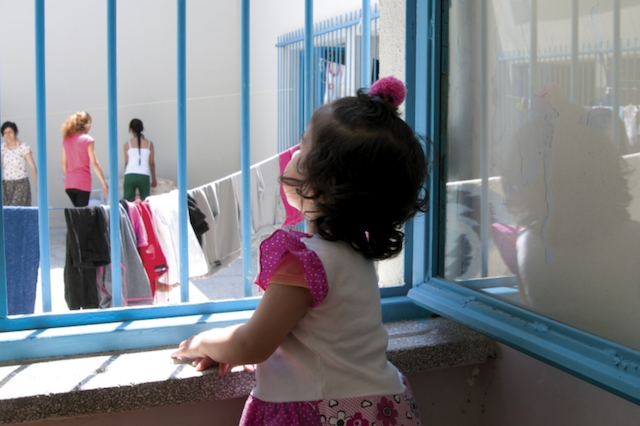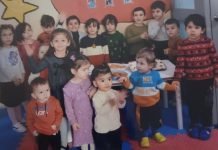A recent report by the Civil Society in the Penal System (CISST) has revealed a growing number of children living behind bars with their mothers, while the inmate numbers continue to rise in Turkey’s overcrowded prisons.
According to CISST, as of October 1, 822 children under the age of six are living with their mothers in prison, up from 759 a year ago. There are also 4,561 minors between the ages of 12 and 18 in detention, including 187 young women.
The total prison population in Turkey has reached 420,904, exceeding the official capacity by 38 percent. This represents a 4.4 percent increase over the last six months, and a sevenfold rise since 2002, when the ruling Justice and Development Party (AKP) came to power.
The report also states that there are 19,290 incarcerated women across the country.
Turkey was by far the leader in the number of prisoners in Europe, according a 2023 report released by the Council of Europe. The country witnessed a 439 percent surge in its prison population between 2005 and 2023, surpassing all other European countries in terms of the rate of increase.
In response to this growth, Turkish government continues to expand the prison system. Six new prisons are expected to open in the next three months, followed by nine in 2026, five in 2027 and two in 2028. With these 22 new facilities, the total number of prisons in Turkey will reach 424 by the end of 2028.
The number of children accompanying their mothers in prison in Turkey skyrocketed in the aftermath of a coup attempt on July 15, 2016, when thousands of women were arrested due to their alleged links to the faith-based Gülen movement.
Turkish President Recep Tayyip Erdoğan has been targeting followers of the Gülen movement, inspired by the late Muslim cleric Fethullah Gülen, since corruption investigations in December 2013 implicated him as well as some members of his family and inner circle.
Dismissing the investigations as a Gülenist coup and a conspiracy against his government, Erdoğan began to target the movement’s members. He designated the movement as a terrorist organization in May 2016 and intensified the crackdown on it following an abortive putsch in July of the same year that he accused Gülen of masterminding. The movement strongly denies involvement in the coup attempt or any terrorist activity.
The United Nations Rules for the Treatment of Women Prisoners (known as the Bangkok Rules), Articles 48-52, contain regulations regarding pregnant women, nursing mothers and women with children in prison. These international standards, adopted in 2010, state that “prisoners who are pregnant/have recently given birth/are nursing/staying with children should be treated according to their needs; children should be monitored by specialists. A child staying with their mother should never be treated as a prisoner.”
According to the Turkish Penal Code’s Article 16, “the execution of prison sentence is postponed for women who are pregnant or who are within six months of delivery.” Experts say that according to the law, the arrest of pregnant women and those who have infants younger than six months of age is not possible at all. The European Court of Human Rights (ECtHR) also focuses on the protection of children and extends safeguards in certain circumstances to unborn children.
However, women who have been jailed in the unprecedented crackdown have been subjected to torture and ill-treatment in detention centers and prisons as part of the government’s systematic campaign of intimidation and persecution of critics and opponents, a report titled “Jailing Women In Turkey: Systematic Campaign of Persecution and Fear” released in April 2017 by the Stockholm Center for Freedom (SCF) revealed.
Founded in 2006 in İstanbul, CISST advocates for the protection of prisoners’ rights and freedoms. The organization is dedicated to ensuring that prison conditions, practices and policies in Turkey uphold human dignity and adhere to universal human rights standards.















